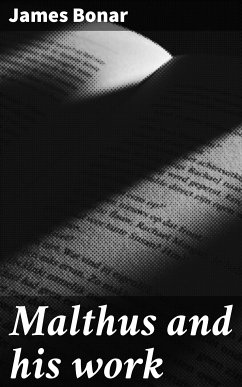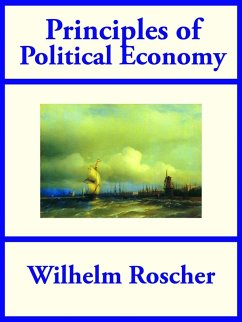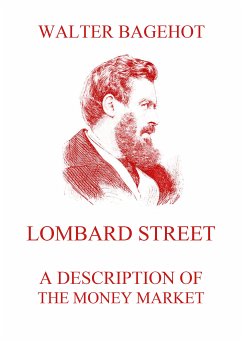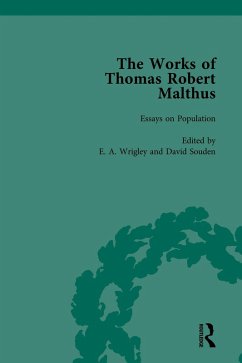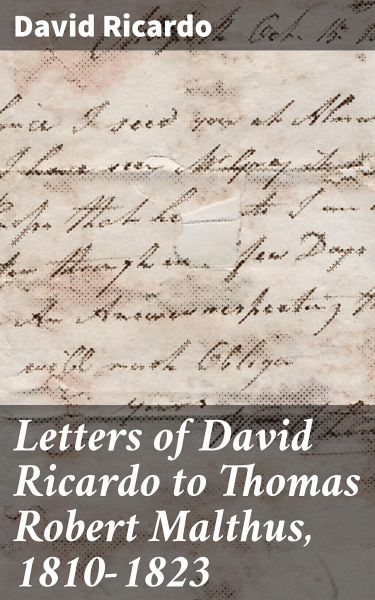
Letters of David Ricardo to Thomas Robert Malthus, 1810-1823 (eBook, ePUB)
Enriched edition. Intellectual Exchange: Economic Insights from Classical Economists
Kommentar: Bates, Kelsey / Redaktion: Good Press; Bonar, James

PAYBACK Punkte
0 °P sammeln!
In the "Letters of David Ricardo to Thomas Robert Malthus, 1810-1823," readers are offered an invaluable glimpse into the intellectual exchange between two titans of classical economics. This collection of correspondence showcases Ricardo's analytical rigor and Malthus's insightful skepticism, addressing profound issues such as monetary policy, value theory, and population dynamics. The letters are written in a clear, articulate style characteristic of the early 19th century, reflecting both the scholarly rigor and the personal rapport that defined their relationship, while firmly situating th...
In the "Letters of David Ricardo to Thomas Robert Malthus, 1810-1823," readers are offered an invaluable glimpse into the intellectual exchange between two titans of classical economics. This collection of correspondence showcases Ricardo's analytical rigor and Malthus's insightful skepticism, addressing profound issues such as monetary policy, value theory, and population dynamics. The letters are written in a clear, articulate style characteristic of the early 19th century, reflecting both the scholarly rigor and the personal rapport that defined their relationship, while firmly situating their discourse within the burgeoning field of political economy. David Ricardo, a prominent figure in the classical economic school, drew from his extensive background in finance and trading to formulate strategies that would later critique and support Malthusian theory. His correspondence with Malthus reveals the depth of his understanding of economic principles and the collaborative nature of knowledge formation in their time. Their dialogues illuminate the tensions and synergies between theoretical abstraction and real-world implications. This book is an essential read for scholars and students of economics, offering unique insights into the foundational debates that shaped modern economic thought. It not only contextualizes the pioneering ideas of Ricardo and Malthus within their historical milieu but also invites contemporary readers to engage with enduring questions about economic theory and policy. In this enriched edition, we have carefully created added value for your reading experience: - A comprehensive Introduction outlines these selected works' unifying features, themes, or stylistic evolutions. - The Author Biography highlights personal milestones and literary influences that shape the entire body of writing. - A Historical Context section situates the works in their broader era-social currents, cultural trends, and key events that underpin their creation. - A concise Synopsis (Selection) offers an accessible overview of the included texts, helping readers navigate plotlines and main ideas without revealing critical twists. - A unified Analysis examines recurring motifs and stylistic hallmarks across the collection, tying the stories together while spotlighting the different work's strengths. - Reflection questions inspire deeper contemplation of the author's overarching message, inviting readers to draw connections among different texts and relate them to modern contexts. - Lastly, our hand-picked Memorable Quotes distill pivotal lines and turning points, serving as touchstones for the collection's central themes.
Dieser Download kann aus rechtlichen Gründen nur mit Rechnungsadresse in A, B, BG, CY, CZ, D, DK, EW, FIN, F, GR, H, IRL, I, LT, L, LR, M, NL, PL, P, R, S, SLO, SK ausgeliefert werden.





